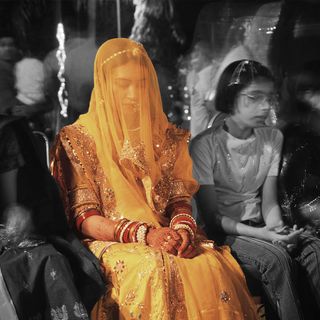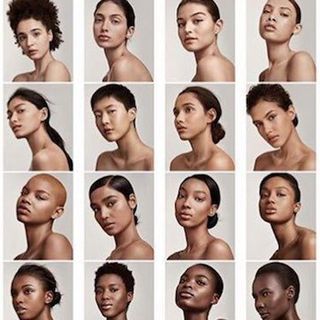There’s a brand-new Beyoncé obsession circling the mainstream media — her “Spirit” single, replete with a stunning video, that the pop star made for the live-action remake of The Lion King, a film in which she also voices Nala, childhood friend of protagonist Simba.A few days after the song’s music video released on July 10, accounts on Twitter started alleging the aesthetics of the video resembled the optics of a South African visual music album, La Maison Noir, by South African singer-songwriter Yannick Ilunga (industry name: Petite Noir). Accounts like Diet Prada (an Instagram user dedicated to unraveling plagiarism in the industry) made side-by-side comparisons of the visual elements, costumes, and some frames from the two works of art — which undoubtedly signal that La Maison Noir was a reference in the creative planning of “Spirit,” whatever Beyoncé’s intention. So, where’s the credit?
There is none. With Beyoncé and team’s silence about the issue, fans have merely speculated so far as to La Maison Noir‘s behind-the-scenes contribution to the aesthetics of “Spirit.” Both are set in the desert; the dancers in both videos seem to follow similar choreographic formations — either circles, squares or single queues; characters in the video also sport flowy, monochromatic outfits of similar textures made to sway with the wind, including an outfit made from cowry shells (albeit Beyoncé’s is more glitzy); and some frames of Beyoncé’s face and of her surrounded by dancers and daughter Blue Ivy also match the video direction of La Maison Noir. When asked for comment, the representative for Petite Noir and team told South African newspaper Mail and Guardian they decline to comment, adding “we do encourage you and your team to explore this further.”
It is entirely possible that Beyoncé’s intention was not to — on purpose — rip off ideas from a lesser-known South African artist, who is coming from a community of black artists the pop star has championed in the past. She has, after all, included two South African artists — Moonchild Sanelly and Busiswa– in the making of the album The Gift, of which “Spirit” is a part. But, at the same time, if the core idea of a work is copied, then it is infringement and plagiarism, no matter what intention, Nishan Singh, a lawyer specializing in copyright law, told the Mail and Guardian. But plagiarism is a tricky thing to prove, and lesser-known artists bereft of the resources, wealth and fan-following of someone like Beyoncé probably cannot sustain the time, energy and effort it takes to litigate fair use claims.
Related on The Swaddle:
Talking Childhood, Music, and the Making of ‘Ghost’ with Parekh & Singh
“All the creative teams & money in the world… yet they still lack the creativity to create something original,” wrote British-Liberian artist and Ilunga’s friend Lina Iris Viktor on Instagram. “To be silent is a discredit to all the artists & creatives who actually put their blood, sweat, and tears into their work… only to be ripped off by celebrities to use to their own benefit & profit off of (not only monetarily). That won’t fly anymore.”
Viktor herself alleged plagiarism against Kendrick Lamar and SZA, when a music video of song “All The Stars” for superhero hit Black Panther (a 2018 movie that was lauded as a champion of black narratives), included an almost replica of one of Viktor’s works of art. “Moreover, so ironic that all the films, musicians & participants who appear to champion and support the African continent now and all of its offerings, also feel entitled to steal from African artists in the process. I say ‘steal’ as it is NOT ‘inspiration’, nor ‘borrowing’, or an ‘homage’ to blatantly lift another’s work without their permission. The end,” she wrote.
It doesn’t matter if a popular, powerful artist claims to champion a certain culture or community — that championing needs to be apparent in their actions. Even if La Maison Noir was only one of many references that Beyoncé’s art team looked at for inspiration, the actual marketing of the video needs to throw it back to the South African artists; a mention from Beyoncé and a note of gratitude could do wonders for a relatively obscure African artist. Popular artists, mostly from the U.S., need to stop being gatekeepers for “original” and groundbreaking works of art — while plagiarism is not acceptable at all, even taking inspiration requires a certain consideration, responsibility and honor.
After a certain level of fame, the line between plagiarism and inspiration doesn’t matter — the power obscures it all. But for the goodwill and love the likes of Beyoncé accrue every time they even breathe, the saying never held more true: with great power comes great responsibility. As Bey herself said, “[A true diva is] graceful, and talented, and strong, and fearless and brave and someone with humility.”




